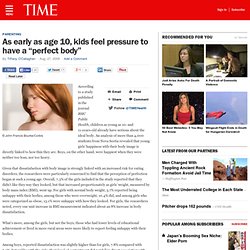

Attention Scale Addicts, part 2. Latest blog post from Jason Seib Brace yourself.

I’m coming at you with all guns blazing on this one and you aren’t going to believe what you’re about to see. First things first, if you haven’t read my diatribe condemning your bathroom scale, please begin there. Alright, now that you are caught up, let’s revisit Deb from my last post. Deb has been kind enough to let me exploit her for your education on these here interwebs and I am very grateful. So here is Deb at the beginning of a contest we held at my gym in January of last year. Here she is at a size zero with her nutrition dialed. And here she is a couple of weeks ago after a lot of hard work that has dramatically increased her fitness capacity. I spent my entire career waiting patiently for the right situation that would produce the picture below.
Now that you are done staring in amazement, eyes darting back and forth between the two Debs and down to “155lbs” to make sure you read it right, let this information really sink in. Mirror, mirror - A summary of research findings on body image. Motives: why we look in the mirror We are all more obsessed with our appearance than we like to admit.

But this is not an indication of 'vanity'. Vanity means conceit, excessive pride in one's appearance. Concern about appearance is quite normal and understandable. Attractive people have distinct advantages in our society. Attractive children are more popular, both with classmates and teachers. It is not surprising that physical attractiveness is of overwhelming importance to us. Concern with appearance is not just an aberration of Modern Western culture. But although we resemble our ancestors and other cultures in our concern about appearance, there is a difference in degree of concern. America The Beautiful. America the Beautiful - Watch the full movie now.
dove evolution Funny Pictures, Really Very Funny Pics & Images. Cute animals videos too. 15 Photoshopped Transformations of Celebs and Models. Women's body image based more on others' opinions than their own weight. Women's appreciation of their bodies is only indirectly connected to their body mass index (BMI), a common health measure of weight relative to height, according to recent research.

The most powerful influence on women's appreciation of their bodies is how they believe important others view them, the study suggests. On the flip side, the more women are able to focus on the inner workings of their body -- or how their bodies function and feel -- rather than how they appear to others, the more they will appreciate their own bodies. Frequency of fat talk associated with increased body dissatisfaction, regardless of waistline. College women who engage in "fat talk" (women speaking negatively about the size and shape of their bodies) face greater dissatisfaction with their bodies and are more likely to have internalized an ultra-thin body ideal than those who engage in fat talk less frequently, according to a review article from Psychology of Women Quarterly.

Study results found that while frequency of fat talk was associated with increased dissatisfaction with women's own bodies, over half of the participants reported that they believe fat talk actually makes them feel better about their bodies. It's concerning that women might think fat talk is a helpful coping mechanism, when it's actually exacerbating body image disturbance. Researchers Rachel H. Salk of the University of Wisconsin and Renee Engeln-Maddox of Northwestern University found that "fat talk" is overwhelmingly common in the college-age women they studied, with more than 90 percent reporting they engaged in "fat talk. " Study finds that 10- and 11-year-olds already have notions about ideal body composition - - TIME Healthland. According to a study published in the journal BMC Public Health, children as young as 10- and 11-years-old already have notions about the ideal body.

An analysis of more than 4,000 students from Nova Scotia revealed that young girls’ happiness with their body image is directly linked to how thin they are. Boys, on the other hand, were happiest when they were neither too lean, nor too heavy. Given that dissatisfaction with body image is strongly linked with an increased risk for eating disorders, the researchers were particularly concerned to find that the perception of perfection began at such a young age.
Overall, 7.3% of the girls included in the study reported that they didn’t like they way they looked, but that increased proportionately as girls’ weight, measured by body mass index (BMI), went up. Previous studies have shown that early, school-based intervention to teach children about healthy body weight and body image have actually achieved some success.